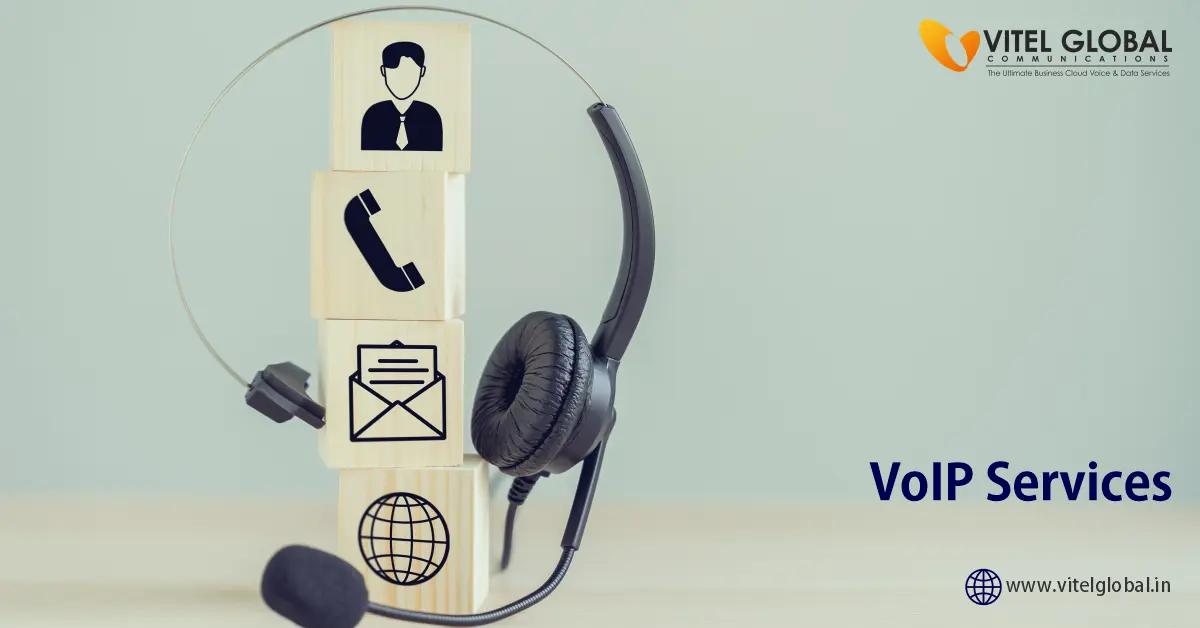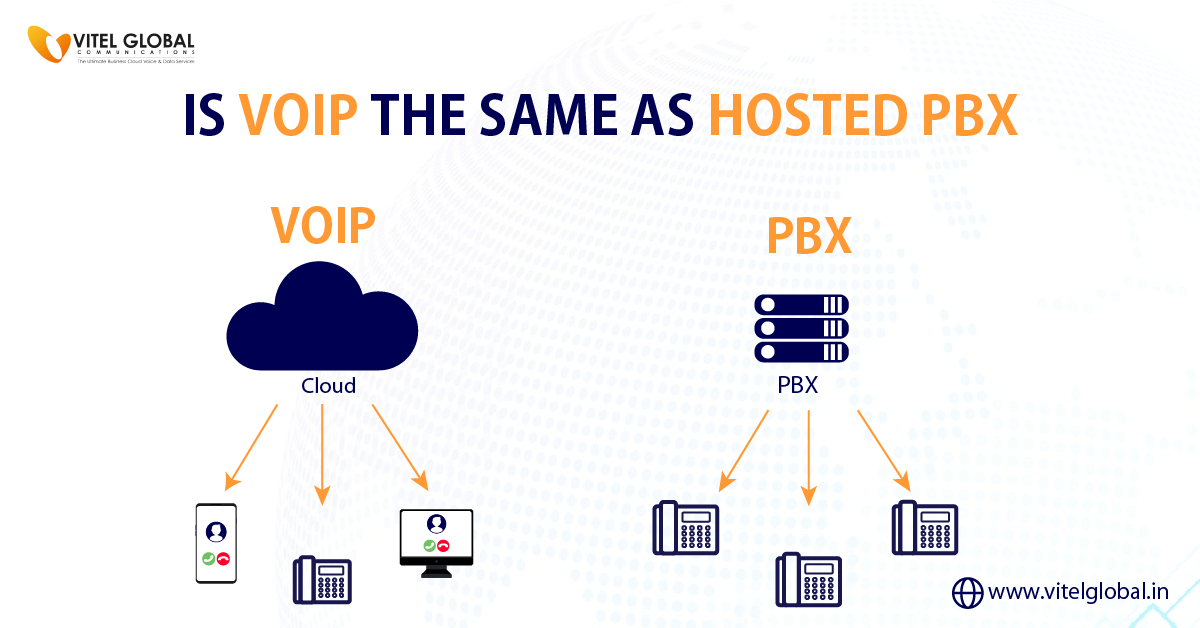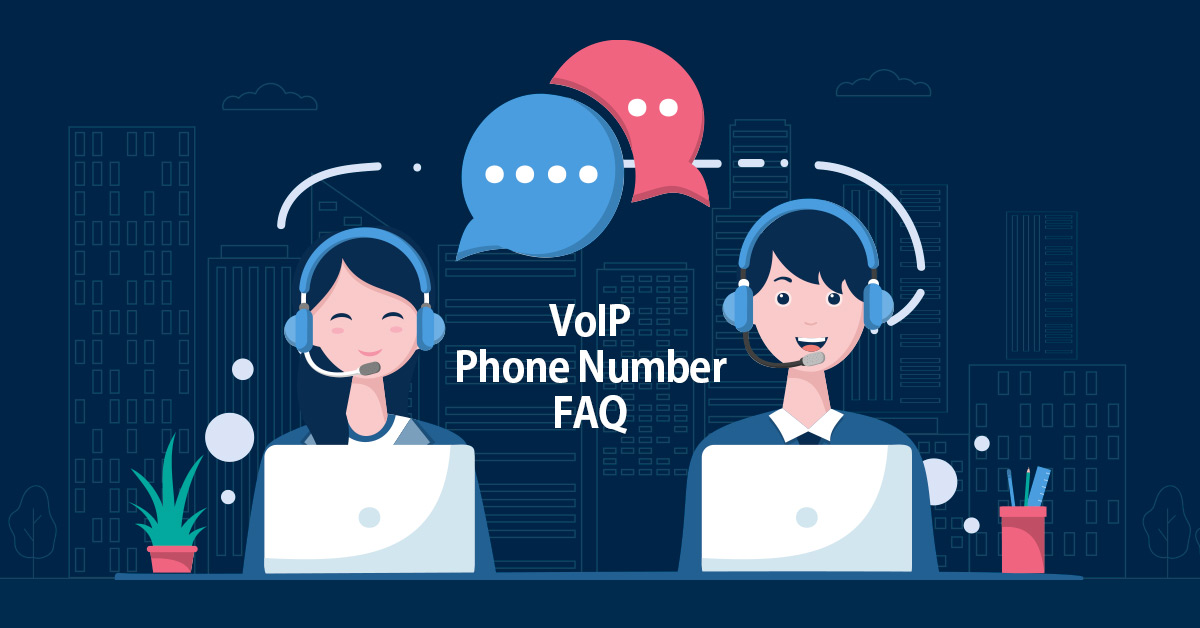Table of Contents
VoIP Features and their providers:
VOIP stands for voice over the internet protocol, used for making and receiving business calls through modern cloud phone systems over the internet. The VOIP name refers to the protocol that helps in routing the calls between the end users. Currently, businesses of all scales prefer advanced VoIP features for desired productivity.
So, a VoIP Service Providing is a business that offers voice-over-internet protocol (VoIP) services to customers, who may be individuals or businesses.
How do VoIP calls work?
- Internet-based calls can be placed and received adhering to the packet switching technique. It is a set of internet standards or protocols and you can place the call using this approach. The voice is broken up into digital packets and transferred across the internet. When using VoIP servers to reach their destination, the compressed digital packets choose the quickest route with the least amount of traffic. VoIP servers connect the calls to different telephone networks.
- The digital packets are compressed into voice signals at the receiver side once they arrive at their destination, whether it be desk phones, laptops, or mobile devices.
- The service provider oversees the entire procedure and provides all of the features of a standard phone without using a public switched telephone network.
- The end users must have VoIP software installed on their mobile devices or laptops, or SIP-compatible desk phones, to establish a VoIP connection. They need an IP address that permits them to place and receive calls across the network.
- The cloud, which is controlled and accessed through the internet dashboard, houses all of the end user’s data.
VoIP requirements:
Therefore, to make it simple to set up VoIP in your communication system, check out the things listed below.
1. Internet access:
Keep a steady, reliable, and fast internet connection from a nearby ISP provided by the internet service provider. Typically, a good speed per device suits set up VoIP in your company. If your company intends to grow, use the same ISP and increase the bandwidth.
2. Devices
Existing analog phones, softphones, and SIP phones can work to manage VoIP calls.
ATA (Analog Telephone Adapter):
ATA stands for analog telephone adapters, which the VoIP service provider provides and is used to link the current traditional phones to the internet. Connect the phone, router, and adapter; it ceases to function as a standard phone
Softphones:
Download the app from the relevant service provider to your smartphone, laptop, or desktop, log in with your account information, and use the setup.
SIP phones:
VoIP phones, also known as SIP phones, are helpful for medium-sized to large businesses.
However, the benefits and features achieved are the same regardless of the device, utilize the VoIP-enabled device from any location, depending on the requirement.
To choose the best VoIP system.
- Verify the plans, paying attention to the duration and call prices.
- Uptime
- Delivered customer service evaluations
- Reliability
- Features
- Customers connected to the business
- Study cases
Features:
Here are a few brief descriptions of the standard VoIP features found practically with all VoIP phone systems:
- Greetings: There is no need for a physical person to answer calls, ensuring that the company will never miss one. You can customize this too.
- Three-way calling makes managing conference calls simple.
- Voice to email: This feature forwards voicemails to email.
- Call waiting: while you are on another call, find out all the information about the caller who is waiting.
- HD calls: You will listen to the call in High-definition.
- Call forwarding: if you are not at your desk, forward calls.
- Call rejection: This function prevents calls from strangers.
- Internet voicemail
- Advanced call reporting: You can automatically generate and update Call reports.
Advantages:
In fact, call charges are mostly helpful for small firms since they avoid making hardware and software investments.
Simple setup: The phone system is simple to set up and maintain.
Storage capacity: Because, everything is stored in the cloud in less physical space, huge organizations do not have to worry about storage databases.
Strong features: In the section of our blog before this one, we described a few features that come standard with practically all VoIP phone systems that can help you advance your conversations.
So, allowing employees to work remotely gives them considerable freedom and boosts productivity for your company.
Scalable: Since additional clients can be added while you are already in a conversation, the system is highly scalable without the need for additional physical devices.
Reliable: VoIP offers excellent security because calls are encrypted and sent over a secure network. It restricts access to the databases to authorized users only.
Expansions: It’s simple to grow your company while spending less money and saving significantly more than you had planned.
Automatic backup: A backup is essential and is performed automatically across many servers.
Disaster recovery: Your backups are kept at all times, you shouldn’t be concerned even if a system crash occurs unexpectedly.
Call monitor: You can record all calls made via the VoIP phone system, even missed calls.
In addition to the above, the call won’t drop while you’re on another call.
Mobile app: Simply download the app from your play store on Android or iOS to start.
Conclusion:
Summing up, all of the information we shared regarding the features and benefits are just a scratch. Vitel Global offers them at reasonable prices being the top VoIP service provider, We offer more than 60 highly prevalent features, embracing your company’s opportunities around the globe.
Grow your business and 𝒎𝒂𝒙𝒊𝒎𝒊𝒛𝒆 𝒑𝒓𝒐𝒅𝒖𝒄𝒕𝒊𝒗𝒊𝒕𝒚 with the industry’s best business communication service.
For more details, visit our website and start creating wonders in your organization right away.
For More Info or Book, Your Free Demo Today click here.





